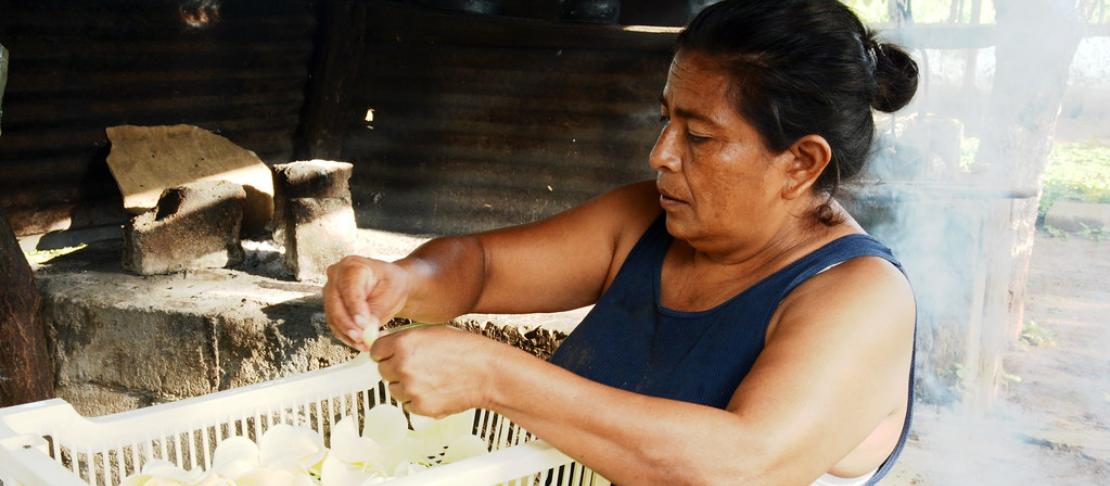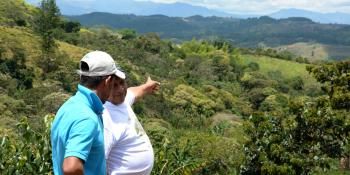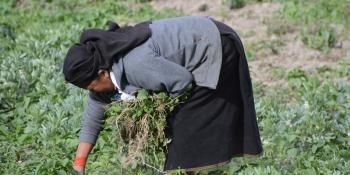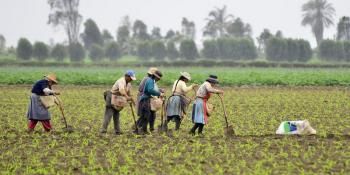Science-policy engagement and climate change: Lessons for Latin America

In a context where the impacts of climate change are worsened by the COVID19 pandemic, the implementation of actions aimed at developing resilient food systems in Latin America has never been more pressing. The scientific community has acted upon these challenges. With climate-smart agriculture, there have been efforts to consolidate sustainable food systems that guarantee productivity, food security, and the reduction of greenhouse gas emissions. However, their capacity to resolve these challenges is limited by the lack of engagement between science and the policies that can enable its implementation.
In the field of climate change policy, strengthening the collaboration between science and decision-making processes is a complex endeavor. Climate change policies tend to divide public opinion, due to the economic and social controversies these generate with their measures. Additionally, the uncertainty of climate scenarios affects the credibility of evidence towards decision-makers. However, science-policy engagement seems to be gaining momentum in Latin America. Initiatives in the form of communities of practice, platforms, knowledge management networks, among others, are working to strengthen science-policy collaborations. Furthermore, different international organizations are opening dialogues to exchange lessons and experiences that can lead to better engagement.
Opening spaces for discussion
One of these dialogues was the Online Seminar “Science-Policy Engagement and Climate Change: Experiences and Lessons Learned for Sustainable Food Systems in Latin America”. Organized by the CGIAR Research Program on Climate Change, Agriculture and Food Security (CCAFS) and the Network on Public Policies and Rural Development in Latin America (PP-AL), this seminar brought together experts to discuss science-policy engagement in the field of climate change policy. The experts came from different sectors and represented countries that included Mexico, Costa Rica, Guatemala, Nicaragua, Colombia, Brazil, Chile, Argentina, and Uruguay.
Challenges and opportunities for Science-Policy Engagement in Latin America
Challenges and opportunities for science-policy engagement came as a result of the different panels and expert discussions that took place during the seminar. Some of the challenges that raise more concerns are the limited technical abilities of different stakeholders to use knowledge in different policy processes; inadequate institutional capacity and lack of willingness to create formal channels for science-policy engagement; and the incongruity between supply and demand of knowledge for decision-making.
However, these challenges can be overcome by approaching science-policy engagement through participatory methods. By these methods, science-policy engagement should strive to involve strategic stakeholders in climate policy and ensure the relevance, legitimacy, and credibility of evidence and decisions to develop climate actions. In this sense, during the seminar experts also highlighted the importance of pursuing the creation of formal collaboration pathways, supported by institutional commitments, and reviewing policy evaluation methods to include the analysis of the impact of science in policy results.
Identifying these challenges and opportunities allowed us to establish a plan to build a “Science-Policy Engagement Toolbox”, to foster better science-policy collaborations. With this plan, CCAFS will aim to build a toolbox that 1) offers context analysis methodologies that help identify science-policy collaboration pathways; 2) identifies strategies that enable communication and coordinate collaboration in science – policy engagement; 3) proposes strategies to foster sustainable science-policy engagement; 4) recommends evaluation methods to assess the impact of science in policy results. CCAFS will aim to make this toolbox available in 2021.
Looking Ahead
Looking ahead, new perspectives emerge to address the study of science-policy engagement. Among these, new research projects regarding methods to evaluate science-policy collaborations and their impact on climate change policy; and consolidating new partnerships to build and enhance the content of the toolbox.
Taking advantage of the opportunities mentioned above opens the possibility to build closer science-policy collaborations and face climate change challenges, within the dynamic institutional context of the region.



